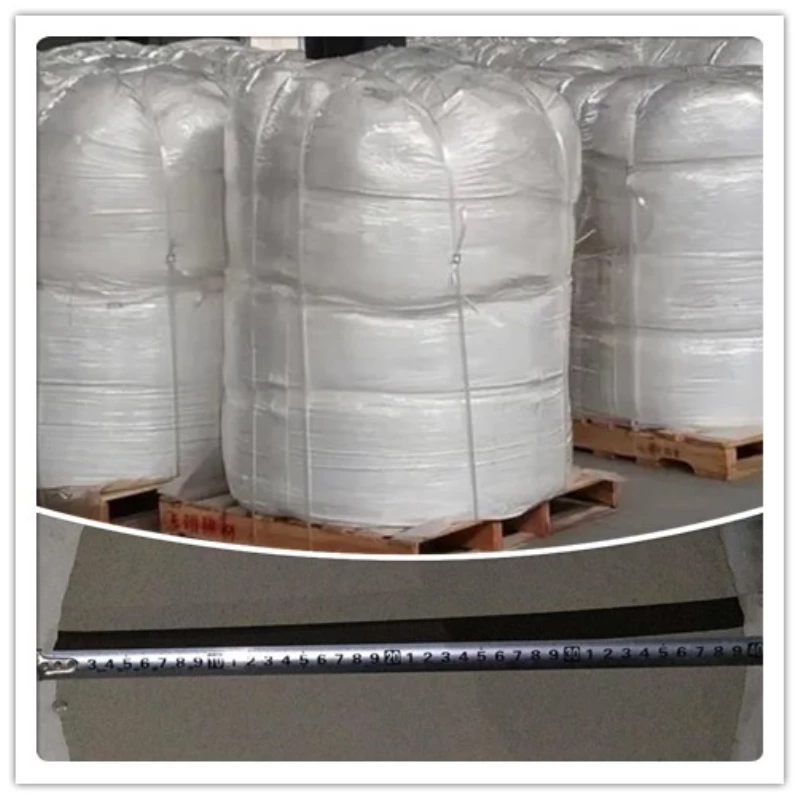Lithium sulfate monohydrate for cement

Key words
Lithium sulfate, Li2SO4·H2O, lithium sulfate monohydrate, LITHIUM SULPHATE, lithium sulfate hydrate, cement, concrete
Specification
CAS:10102-25-7
EINECS: 233-820-4
Molecular formula: Li2SO4·H2O
Properties: white crystalline particles
Lithium sulfate content: 97%, 98%, 99%
Packing: 25kg cardboard drum or bag
Characteristics
Colorless crystal, lose crystal water at 130°C, soluble in water, almost insoluble in alcohol, neutral in aqueous solution, specific gravity 2.06, melting point 860°C.
Dosage range
0.05% - 0.5% of cementitious material.
Usually, the dosage is recommended to be 0.1% in experiments;
the actual dosage should be determined by experiments.
Function and Uses
Due to the small radius and strong polarization of lithium ions, it has better penetration. Lithium ions can easily penetrate the polymer film structure produced by cement hydration, thereby promoting the reaction speed of cement hydration.
Lithium sulfate can promote the rupture of the hydration film produced by the early hydration of cement, accelerate the end of the hydration induction period of the grouting cement, and promote the improvement of the early strength of the cement. At the same time, the development of the cement strength is more balanced, and the development of the later strength of the cement is promoted.
Lithium sulfate is a lithium-based accelerator for dry-mixed mortar, especially suitable for sulfur-aluminum cement and high-alumina cement systems.
It is usually used in self-leveling cushions and surfaces, and can also be used in dry-mixed mortar products of all sulfur-aluminum cement and high-alumina cement systems that require rapid curing.

Key words
Lithium sulfate, Li2SO4·H2O, lithium sulfate monohydrate, LITHIUM SULPHATE, lithium sulfate hydrate, cement, concrete
Specification
CAS:10102-25-7
EINECS: 233-820-4
Molecular formula: Li2SO4·H2O
Properties: white crystalline particles
Lithium sulfate content: 97%, 98%, 99%
Packing: 25kg cardboard drum or bag
Characteristics
Colorless crystal, lose crystal water at 130°C, soluble in water, almost insoluble in alcohol, neutral in aqueous solution, specific gravity 2.06, melting point 860°C.
Dosage range
0.05% - 0.5% of cementitious material.
Usually, the dosage is recommended to be 0.1% in experiments;
the actual dosage should be determined by experiments.
Function and Uses
Due to the small radius and strong polarization of lithium ions, it has better penetration. Lithium ions can easily penetrate the polymer film structure produced by cement hydration, thereby promoting the reaction speed of cement hydration.
Lithium sulfate can promote the rupture of the hydration film produced by the early hydration of cement, accelerate the end of the hydration induction period of the grouting cement, and promote the improvement of the early strength of the cement. At the same time, the development of the cement strength is more balanced, and the development of the later strength of the cement is promoted.
Lithium sulfate is a lithium-based accelerator for dry-mixed mortar, especially suitable for sulfur-aluminum cement and high-alumina cement systems.
It is usually used in self-leveling cushions and surfaces, and can also be used in dry-mixed mortar products of all sulfur-aluminum cement and high-alumina cement systems that require rapid curing.
Supplier's popular products
Contact Supplier
We have more categories for you. lf you can't find the products you want above,just fill in the form and tell us whatproducts you want to import from China.















